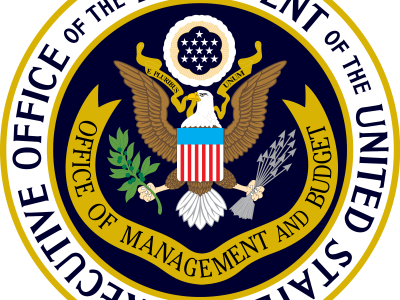CEQA and UC Berkeley’s Enrollment
A recent court order freezing UC Berkeley enrollment highlights key issues in CEQA
A recent court order, freezing UC Berkeley’s student enrollment at 2021-22 levels, has earned some press attention and notoriety. Commentators on Twitter have accused the lead plaintiffs (residents in the Berkeley area) of being exclusionary NIMBYs. The court’s decision was premised on violations by UC Berkeley of the California Environmental Quality Act (CEQA), a law that has long been a lightning rod for controversy in the state. In this series of blog posts, I wan...
CONTINUE READINGDear 1L . . . .
Welcome to law school. You’re just in time to help save the world.
Dear 1L: You've gotten to law school at a crucial time for the future of the planet. The good news is that you're arriving at a pivotal point when your work as a lawyer can make a big difference. The bad news is that we have a limited amount of time to get the situation under control. You'll need to plunge right into the issues as a lawyer if you're going to contribute. At the end of environmental law courses, I used to tell students about the role they could pla...
CONTINUE READINGTackling Agricultural Methane: Monitoring and Policy Strategies
A review of inventory, monitoring, and regulatory tools needed to reduce agricultural methane emissions
(This post was authored by Eric Peshkin, a JD candidate at NYU School of Law and CLEE summer research assistant) Last week, global leaders announced a commitment to reducing global methane emissions. In a previous blog post, I briefly reviewed some of the innovative strategies to reduce methane emissions from agricultural livestock and rice operations, which have the potential to combat a significant source of global greenhouse gas emissions. In this post, I will desc...
CONTINUE READINGThe Global Methane Pledge
The US and EU Take an Important Step
I have written before about the importance of taking action quickly to reduce and eliminate methane emissions, including here. On Friday, the US and EU announced a Global Methane Pledge, which the UK and others immediately joined. The Pledge received limited press coverage, but it is an important step that will lead to real action, particularly if more nations join the Pledge in the run-up to COP 26 in November. Here are the basics: The Pledge aims to achieve ...
CONTINUE READINGGreening the Land of Lincoln
Illinois passes pathbreaking energy law.
Last week, Illinois’s governor signed into law a major piece of climate legislation. The law deserves more attention than it has received. Sadly, however, Illinois seems to be something of a neglected stepchild in the media. That’s a pity, because there are some important lessons in Illinois’s experience, both for the Midwest and the country as a whole. Maybe because it’s in “flyover country,” the state of Illinois suffers in terms of media attention. A ...
CONTINUE READINGCalifornia Enacts Historic Housing Reform Laws
Legislation Promotes New Housing, Infill Development, & Reduced Air Pollution
The California Legislature recently enacted, and Governor Gavin Newsom last week signed into law, two major housing reform measures. SB 9 and SB 10 represent California's most transformative new housing laws in decades, and are a belated but welcome legislative response to the state's longstanding housing crisis. SB 9, authored by California State Senate leader Toni Atkins, effectively ends single family residential zoning in most urbanized areas in California. Sp...
CONTINUE READINGThe Last Four Years — and the Next Four
How did our predictions about Trump hold up? What should we expect for Biden?
In September 2017, Eric Biber and I published a threat assessment after the first 200 days of the Trump Administration. For those who have buried their memories of that time, those were days of shock and despair about the future of environmental protection (and much else). It seems time to bring our report up to date. Where were we right or wrong? And what does this says about Biden’s prospects? The 2017 report was organized at the tool that Trump could use, rather ...
CONTINUE READINGCitations for environmental and energy law scholars 2021
The most-cited environmental and energy law professors from 2016-2020
Brian Leiter at Chicago is once again doing his occasional series identifying the top cited legal scholars in the United States in a range of substantive areas. As I did the last time Leiter posted these totals, I thought it might be helpful to our readers to have a list that is focused on US scholars who work substantially or primarily on environmental and energy law. Like prior years, I haven’t separated out scholars whose work is not primarily in environmental law, ...
CONTINUE READINGIs the ‘Vaccine Mandate’ Legal?
Despite all the political huffing and puffing, Biden's order has a solid legal basis.
Incensed critics are calling Biden’s proposed “vaccine mandate” an outrageous usurpation of power. They need to take a deep breath. It’s not really a vaccine mandate, the only statutory issue is procedural, and there’s no constitutional problem. Calling Biden’s order a vaccine mandate is misleading. It could just as well be considered a testing mandate with a vaccination opt-out. Biden has directed OSHA to develop a rule requiring “all employers with 100...
CONTINUE READINGVacancy
A Key White House regulatory office has remained unfilled for a record time.
The Biden Administration is looking to make big regulatory changes, not least regarding climate change. Yet the White House office overseeing regulations is vacant. The obscurely named Office of Regulatory Affairs and Information (OIRA) has to sign off on all significant regulations. Even the dilatory Donald Trump had nominated a permanent administrator by July of his first year. Biden’s delay in filling this important office is hard to defend. The main reason for...
CONTINUE READING










